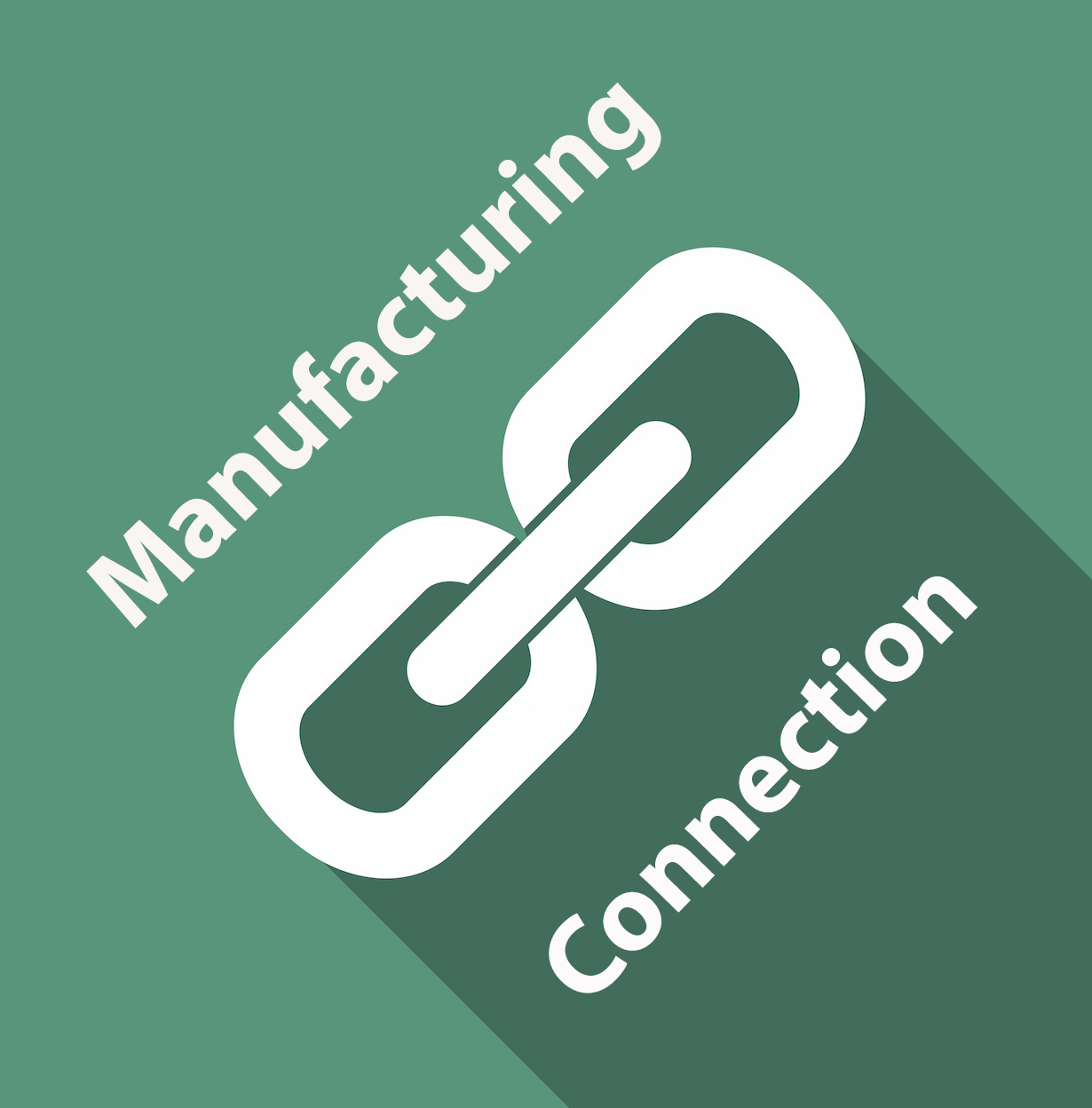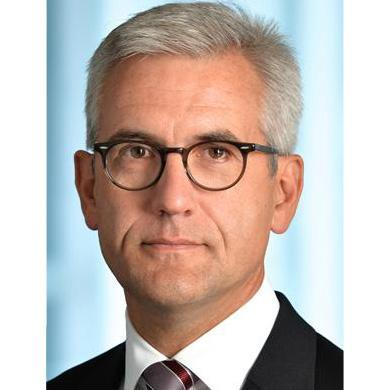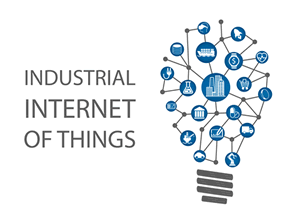
by Gary Mintchell | Apr 23, 2019 | Manufacturing IT, Operations Management, Software
There is so much hype around Artificial Intelligence (AI) that I sometimes want to discount it. However, here is yet another (see last week’s post) example of what AI can really accomplish. This industry-specific application of artificial intelligence technology simplifies interactions with ERP systems, automates tasks, and facilitates faster operations.
Epicor Software, a global provider of industry-specific enterprise software, has announced the release of Epicor Virtual Agent (EVA), its new enterprise-wide digital agent designed to help users work smarter and accelerate pace of operations across the business more easily.
“EVA will enable customers of all sizes, regardless of their operating model, to increase productivity, work smarter, and grow their business in whatever direction they want in today’s Industry 4.0 ecosystem,” Scott Hays, Senior Vice President, Product Marketing, Epicor Software.
Developed to execute tasks and recommend, predict, and adjust actions within set parameters, EVA appears on-screen as a virtual
assistant that users can access via text or voice. Along with cognitive skills such as text and voice, EVA transforms data into visual information creating an intuitive experience to complete actions on native devices. Powered by Natural Language Processing (NLP), users can access EVA from their mobile devices and the agent will deliver targeted information to help them make better, faster decisions.
Beyond the request/response conversational experience, EVA also uses artificial intelligent (AI) capabilities to proactively deliver alerts and carry out targeted actions based on combinations of events, market statistics, and historical data. Designed to extend and support the workforce, EVA can contribute timely insights that improve accuracy, problem-spotting, and can even forecast and automatically adjust production or distribution levels in-line with customer demand.
“New forms of interacting with business software solutions are a key to accelerating the pace of operations and improving the exchange of data and information,” said Hays. “Having an intelligent agent at hand will help companies become more agile and responsive to unexpected events and rapidly changing customer demands.”
According to industry analyst firm Gartner more than 50 percent of all people collaborating in Industry 4.0 ecosystems will use virtual assistants or intelligent agents to interact more naturally with their surroundings and with people by 2022. IDC predicts that by the same year, task-level intelligent applications (apps) that augment human efforts will account for 30 percent of the enterprise apps market. According to IDC, by 2027 the advances in unsupervised and reinforcement machine learning will enable cognitive/AI systems that can detect and sense their environment, learn independently, and make decisions on their own or provide humans with constraint-optimized recommendations.
“With EVA, you interact naturally with your ERP system,” comments Hays. “It’s as easy as just talking or typing to a colleague. This makes the breadth and depth of the industry-specific functionality and information available inside the system directly accessible to a larger audience, boosting productivity and efficiency, and giving the company an improved return on their ERP investment.”
Developed using AI services from Microsoft Azure, EVA can be added to all sizes and types of Epicor ERP implementations—on-premise as well as in the cloud. This ensures customers of any size, including small and medium-sized companies, can take advantage of innovative technologies that will help them grow their businesses.
“As consumers we’re already familiar with conversational technology, EVA will be easy for users to start working with straight away. Furthermore, thanks to its machine learning component, the more you use EVA, the better it will work for you,” said Hays. “We are confident that using an artificial intelligence-based agent that has deep industry-specific applications will make their enterprise systems more predictive, adaptive, and proactive. EVA will enable customers of all sizes, regardless of their operating model, to increase productivity, work smarter, and grow their business in whatever direction they want in today’s Industry 4.0 ecosystem.”
One use case highlighted by Epicor was manufacturing. Using EVA to detect an anomaly early on in a production machine that, if left untouched, could lead to unplanned downtime and sub-standard product quality. Data from machines and IoT sensors, combined with Epicor ERP, provides a virtual nervous system that delivers AI-driven alerts from EVA to a mobile device. With just a few clicks on the device, the production manager can confirm suggestions from EVA to schedule preventive maintenance for a machine and shift production to other available machines.

by Gary Mintchell | Apr 22, 2019 | Internet of Things, Operations Management, Organizations
Companies and organizations band together to develop open platforms to drive manufacturing technology use cases forward. I’ve received notice of two more announcements from Hannover. The problem as I see it lies in the proliferation of these alliances.
Everyone says they want to be open and attract everyone. However, someone is always driving these organizations. Evidently competitors don’t want to sign in with each other. So, they go off and start another one. With any luck, each platform will construct open connectors such that the broader industry will be served.
Note to my American readers—there is a decidedly European flavor to these announcements. Many American companies seem to have a “go it alone” mentality shunning collaboration and open standards. It will take pressure from their customers to get them to open up to the new world.
In this post, I’ll take a quick look at the Open Manufacturing Platform and the Open Industry 4.0 Alliance.
Microsoft and the BMW Group launched the Open Manufacturing Platform, an initiative to drive open industrial IoT development, help grow a community to build future solutions and enable faster, more cost-effective innovation in the manufacturing industry. The OMP is the latest step in Microsoft’s commitment to the advancement of innovation in the manufacturing space by enabling open platforms. The new community is being formed now and will support the development of smart factory solutions shared by OMP members and partners. The Advisory Board is expected to be set up with four to six partners by the end of 2019.
Built on the Microsoft Azure Industrial IoT Cloud platform, the OMP is designed to:
· Provide community members with a reference architecture with open source components based on open industrial standards and an open data model.
· Foster collaboration with community members and partners who will have the capability to develop their own solutions and services while maintaining control of their data.
· Address common industrial challenges such as machine connectivity and on-premises systems integration.
Microsoft will also continue its longstanding work with SAP and other partners in the Open Industry 4.0 Alliance, also announced today, further supporting industry collaboration now and into the future.
The Open Manufacturing Platform is an open industrial IoT platform to accelerate production and logistics optimization efforts.
- Data standardization across data producers for faster insights correlation
- Central auditability and dashboards
- Data monetization opportunities through controlled sharing and ownership
- Open source for OMP components
- Community approach ensures requirement prioritization. All partners contribute and can shape the future of the platform, focusing on common industrial use cases and challenges.
An alliance for the IIoT
At the Hannover Messe 2019 trade fair, seven leading suppliers from mechanical engineering, industrial automation and software announced the foundation of the Open Industry 4.0 Alliance. With this cooperation, the companies want to overcome proprietary solutions and give a decisive boost to the digital transformation of the European industry.
Founding members of the alliance are Beckhoff, Endress+Hauser, Hilscher, ifm, KUKA, Multivac and SAP. In principle, the alliance is open to all companies. Balluff, Gebhardt, Pepperl+Fuchs, Schmidtsche Schack, Samson and WIKA have already joined the alliance as members. All companies are mutually committed to the creation of a standardized and open ecosystem for the operation of highly automated factories and process plants with the integration of logistics and services.
“The open architecture of the Open Industry 4.0 Alliance meets all the requirements of the process industry,” emphasized Matthias Altendorf, CEO of the Endress+Hauser Group. “It is based on standards, ensures transparency across all business processes and guarantees the integrity of the systems. This enables process plant operators to leverage the potential of digitalization.”
The alliance members are planning to realize a so-called Open Industry 4.0 Framework based on existing standards such as I/O Link, OPC UA and RAMI for the entire route from objects in the workshop to services. Customers can choose from a modular system of compatible and scalable solution and service components, such as digital services from Endress+Hauser’s Netilion IIoT ecosystem.
The connection to the SAP software portfolio ensures the integration of a company’s business processes as well as collaboration with partners across company boundaries. The open architecture allows the simple connection of further system landscapes.

by Gary Mintchell | Apr 19, 2019 | News, Organizations
In a bit of a surprise to us outsiders, the Board of Directors of ABB and its CEO Ulrich Spiesshofer (55) have mutually agreed for him to step down from his role, which he has held since 2013. The Chairman of the Board, Peter Voser (61), will become interim CEO in addition to his current role, with immediate effect. An official search to find a new CEO has been initiated.
Spiesshofer accomplished much in his tenure. He slimmed the company emphasizing the most profitable divisions. He assembled a good team with great focus. However, as I was contemplating only last week, the stock price has languished for years despite the work. I guess even in Europe the price of stock matters most.
Peter Voser: “On behalf of the Board and the employees of ABB, I would like to personally thank Ulrich for his dedication and commitment to ABB’s customers and employees not only as CEO but also in other executive roles at ABB since 2005. Under his leadership, ABB has been transformed into a global technology leader focused in digital industries. He strategically repositioned the company and built up growth momentum across all businesses. We wish him all the best for his future endeavors.”
Voser added: “We will continue to focus on implementing ABB’s strategy and delivering value to all our stakeholders. To achieve our key financial targets, we will proceed with the divestment of ABB’s Power Grids business as planned, simplify the organizational structure of the group and deliver cost savings. Finally, our four new leading businesses will be fully dedicated to meet our customer needs for digitalization, electrification, automation and robotics.”
Ulrich Spiesshofer: “After 14 years of “all in” dedication and commitment to all our employees and customers, I hand over to Peter a trimmed ABB ship that is on a clear course and gaining speed. I would like to warmly thank our colleagues around the world, customers and partners as well as the Board of Directors for the opportunity to serve this fine company for nearly one and a half decades in different roles in the Executive Committee and as CEO. I will now take some time out before deciding on the next chapter of my professional life. From the bottom of my heart, I wish ABB’s global team all the very best for its future.”
Peter Voser, a Swiss citizen, has been Chairman of ABB since April 2015. Prior to this, he was CEO of Royal Dutch Shell from 2009-2013, and CFO between 2004-2009. Between 2002 and October 2004, he was CFO of ABB and a key leader behind the successful turnaround of the company. Voser also brings a wealth of experience in board positions in leading companies such as a Roche, IBM, Catalyst, Temasek Holdings and PSA International in Singapore.
ABB will hold its Annual General Meeting on May 2, 2019, in Zurich, as planned.

by Gary Mintchell | Apr 18, 2019 | Podcast, Technology
I’ve released another podcast discussing the emergence of a couple of startups leveraging the latest technologies to solve some interesting problems.

by Gary Mintchell | Apr 18, 2019 | Internet of Things, Operations Management
- Survey of More Than 1,700 IoT Developers Reveals Top Hardware, Software “Stack” Choices
- Eclipse Foundation survey finds security, connectivity and data collection/analysis are top three current “developer concern” areas as commercial IoT adoption marches forward
The Eclipse Foundation, the platform for open collaboration and innovation, released the 2019 IoT Developer Survey that canvassed more than 1,700 developers about their IoT efforts. The survey was conducted by the Eclipse IoT Working Group in cooperation with member companies (including Bosch Software Innovations, Eurotech, and Red Hat), and support from the IoT community at large.
IoT developers are driving real commercial outcomes, as evidenced by the fact that two-thirds of respondents in the survey were working on IoT projects professionally. Their top three concerns in building out IoT systems were Security (38% of respondents), Connectivity (21%), and Data Collection and Analysis (19%). Performance (18%), Privacy (18%), and Standards (16%) were also areas cited as particularly challenging for IoT development.
“This year’s survey results reflect the opportunities and challenges surfaced by the accelerating market adoption of IoT solutions and services,” said Mike Milinkovich, Executive Director of the Eclipse Foundation. “Developers are contending with interoperability and performance challenges across key areas like constrained devices, device gateways, and scalable cloud platforms. Connectivity, in particular, is a rising developer concern because of the proliferation of incompatible networking technologies in the market ”
Other Survey Highlights included:
- IoT Cloud Platforms (34%), Home Automation (27%), and Industrial Automation / IIoT (26%) were the respondents’ three most common industry focus areas.
- The top three CPU architectures for constrained devices used by respondents were ARM-based, with significant use of niche 8-bit, 16-bit and 32-bit MCUs.
- Respondents cited 70% usage of gateways and edge nodes with ARM variants, and 42% gateways and edge nodes with Intel x86 and x86_64 CPUs.
- Communication Security (38%) Data Encryption (38%), and JSON Web Tokens (JWTs) (26%) were the top three security technologies cited in the survey, with virtualization also starting to play a stronger role in IoT Security.
- C dominated as the programming language of choice for constrained devices, while Java was most popular for gateways/edge nodes and IoT cloud.
- AWS, Azure, and GCP maintain their status as the leading IoT cloud platforms.
- 45% of respondents used the Eclipse IDE for their IoT development, while 32% used Visual Studio.
- HTTP (49%), MQTT (42%), and Websockets (26%) were the top three communications protocols used by IoT developers.
“MQTT is clearly the dominant IoT-specific protocol, second only to HTTP itself,” said Milinkovich. The Eclipse Tahu project is now the home of the Sparkplug specification which extends MQTT with well-defined topic and payload structures to improve interoperability of industrial devices, while leveraging the bandwidth efficiency and low latency features of MQTT.
The findings of this survey support the idea that IoT development is expanding at a rapid pace, fueled by the growth of investments in predominantly industrial markets. The sustained focus on areas like IoT platforms, home automation, and industrial automation suggests these are likely to continue to be key targets for developer activity in IoT.









